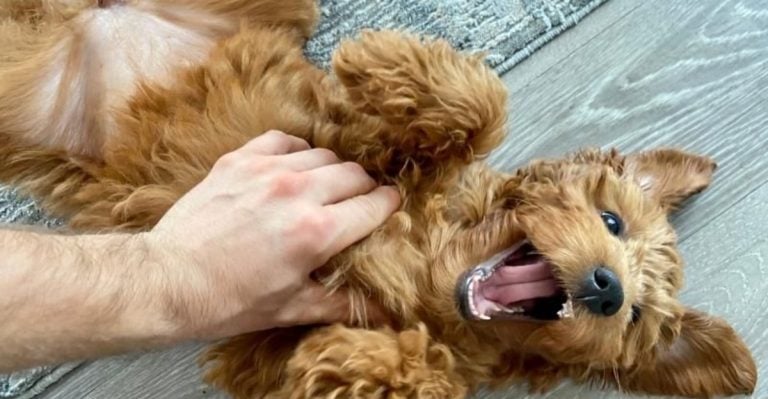15 Behaviors That May Signal Musculoskeletal Stress In Pets

As a pet owner, observing small changes in your pet’s behavior can be a key to identifying musculoskeletal stress. These cues may be a call for help and a signal that a vet’s assessment or chiropractic care is needed. Acknowledging these signs will help you address the problem early on and prevent the pain from escalating.
Hesitancy To Climb Stairs Or Jump On Furniture

Is your pet hesitant to jump on the couch or tackle stairs? This reluctance is often a red flag for musculoskeletal issues. It’s not just laziness—something may be hurting. If the tasks seem too harsh, arthritis or joint ache could be the culprit. Time to keep an eye out!
Resistance To Being Touched

Pets that suddenly shy away from being touched may be having more than a mood swing. Joint discomfort, muscle soreness, or an old injury can make your pet react defensively to physical contact. Chiropractic treatments, including gentle adjustments, can relieve this distress and restore comfort.
Repeatedly Licking A Specific Limb

If your pet keeps licking or chewing at a specific spot, they’re not just cleaning up. Constant licking often points to a localized ache in a limb or joint. This action is their way of dealing with the pain. If it persists, it’s worth checking for signs of arthritis or other injuries.
Uneven Gait During Walks And Play

Ever spot your dog limping or favoring one leg during a stroll? An uneven gait might indicate muscle strain or arthritis. Your pet is compensating to avoid irritation in one area. Keep track of how your pet moves; small limps can become more significant problems if left unchecked.
Difficulty Getting Up From Resting Positions

When your pet struggles to stand up after lying down, it’s more than laziness. It’s often a clear indicator of muscle weakness or joint pain. This reluctance to rise can signal underlying issues, and can lead to increased discomfort and reduced mobility over time.
Audible Clicking Or Popping Sounds During Movement

Hearing clicks or pops as your pet moves could be a sign of joint instability. Certain sounds occur when ligaments or cartilage don’t work as they should. If the clicking worsens, it’s time for a vet check before the trouble gets worse.
Uncharacteristic Aggression Or Mood Changes

Sudden mood swings in your pet? If your usually gentle animal becomes irritable or aggressive, musculoskeletal issues might be the reason. They can’t tell you they’re hurting, so they act out instead. Remember that pain often changes their behavior in ways you may not expect.
Decreased Interest In Physical Activities

It’s not just a lazy phase when your pet loses interest in playtime or walks. Fatigue during movement can make physical activity feel unpleasant. Watch for signs of reluctance in things they once loved to do. If your pet’s energy levels drop, musculoskeletal stress could be to blame.
Awkward Or Uneven Postures

Your pet may be sitting or standing a little off-balance to ease muscle or joint tension by shifting weight. This wonky posture could signal strain in their hips, spine, or limbs. Your pet’s body may be trying to avoid aggravating an injury or weakness.
Changes In Sleeping Positions Or Locations

If your pet’s snooze spots have changed or they seem fidgety while sleeping, there may be more going on than just preference. Pain can lead them to seek softer surfaces or more supportive spots. These shifts could be a sign that something isn’t quite right with their musculoskeletal system.
Abnormal Tail Movement

Changes in tail movement can signal an underlying twinge. For example, a low, stiff, or rigid tail can point to an ache around the hips or spine. Since tail movements are key indicators of a pet’s emotions and physical health, a lack of normal wagging could be a sign that something is wrong.
Unusual Noises When Being Lifted Or Handled

If your pet makes unusual sounds when you lift them, it could be a sign of a cramp in their back or neck. Vocalizations during movement often indicate musculoskeletal stress. Don’t overlook these sounds as they may be your pet’s only way of signaling discomfort.
Head Shaking Without Ear Infection Symptoms

Frequent head shaking without signs of an ear infection could be more than an annoyance. It could stem from neck tension or spinal issues. Look for other signs like stiffness or difficulty turning the head, as these can indicate musculoskeletal discomfort.
Neck Stretching Or Chin Pressing Against Objects

Neck stretching or pressing their chin against furniture can be your pet’s way of relieving neck or spinal discomfort. This behavior is often linked to muscle stiffness, herniated discs, or arthritis. Observe how often this happens; frequent stretching could signal musculoskeletal stress.
Selective Avoidance Of Specific Surfaces

Does your pet avoid hard surfaces like tile or hardwood but move comfortably on carpet or grass? This selective behavior often points to joint tension, particularly in the hips and knees. Avoiding hard or slippery floors may be their way of protecting sore or unstable joints from further strain.






